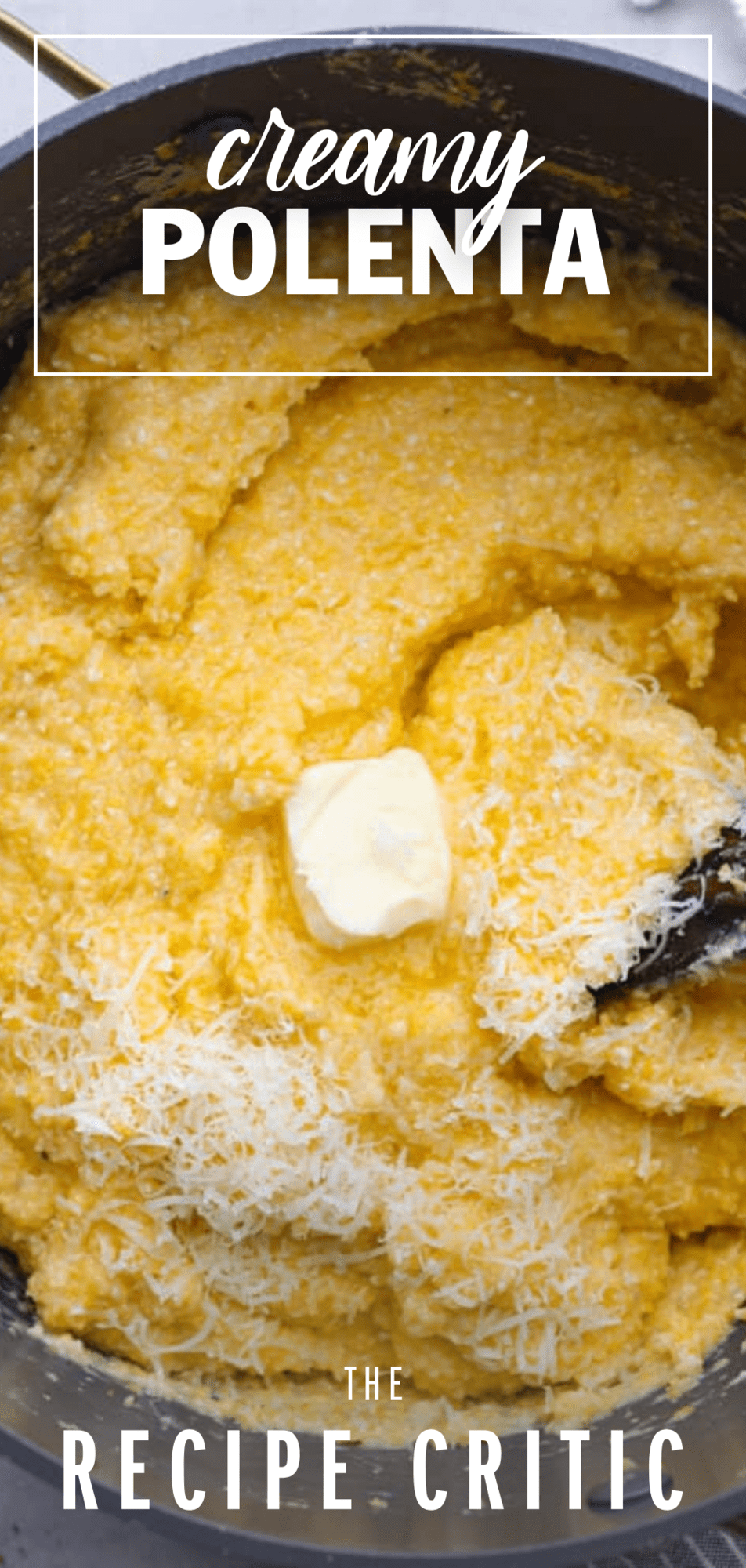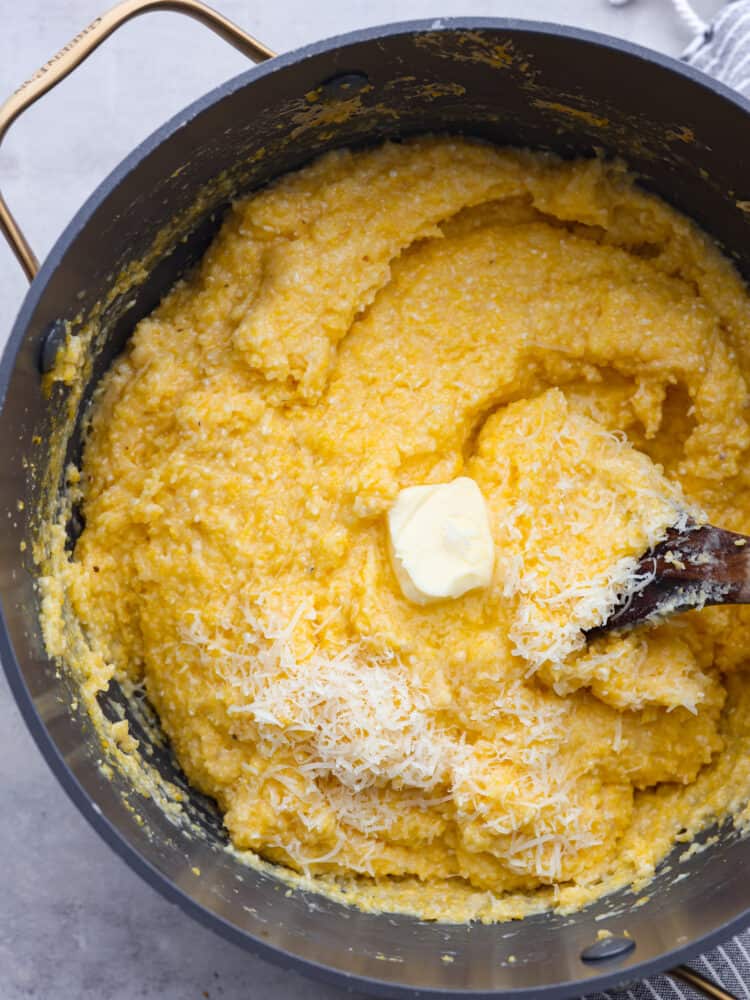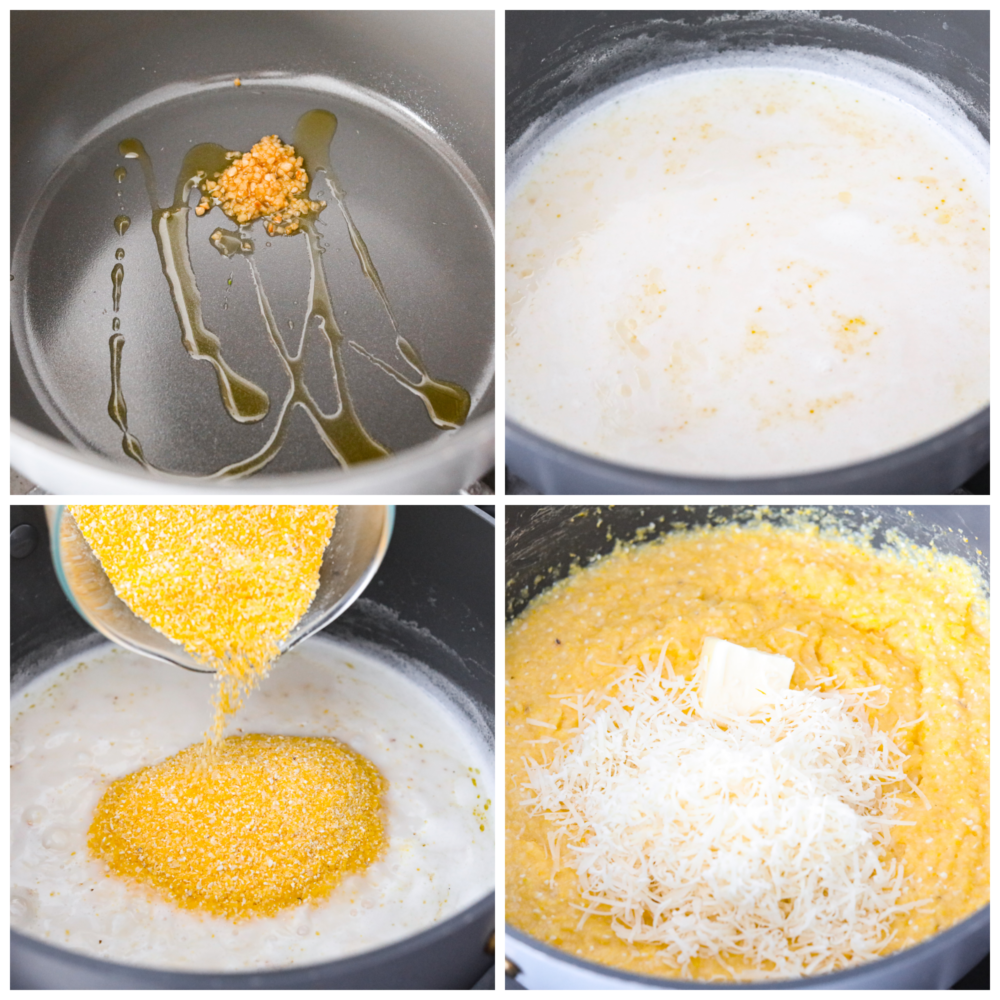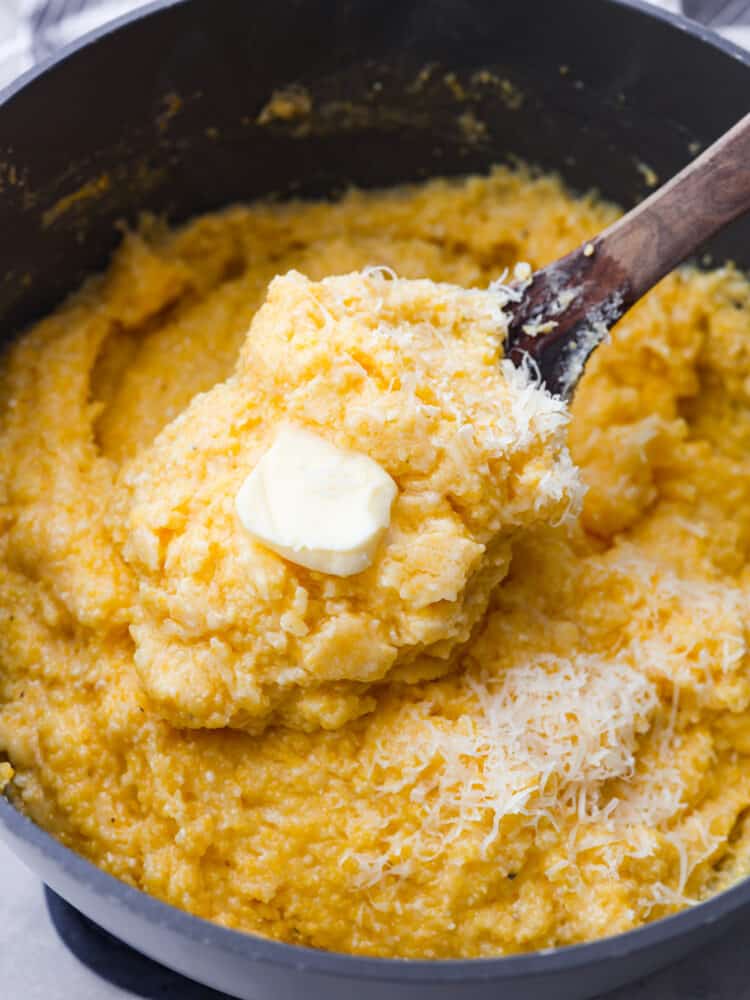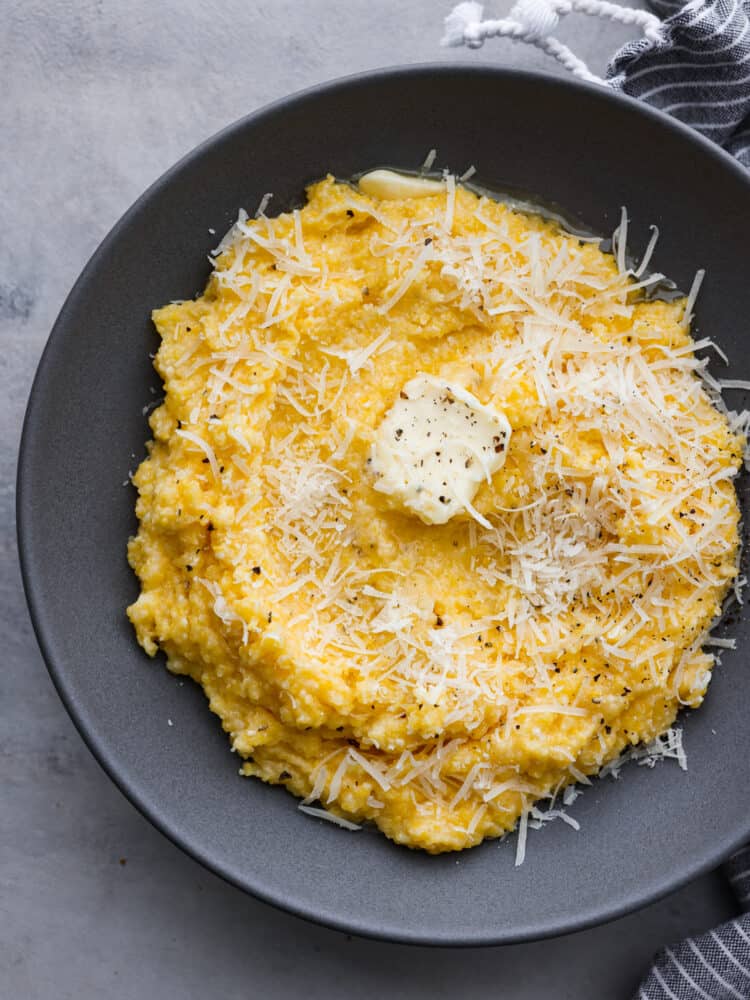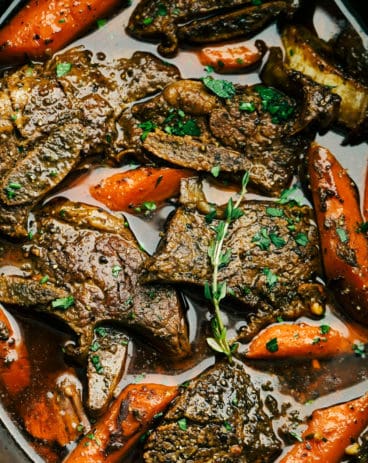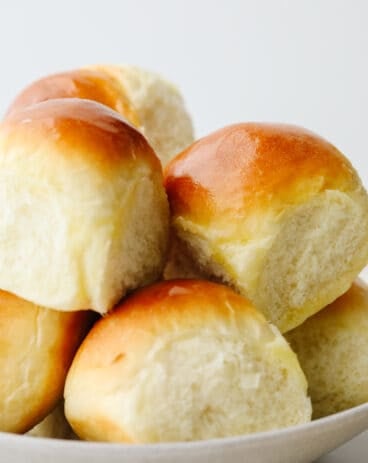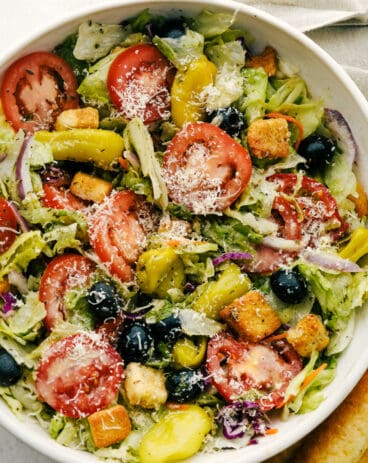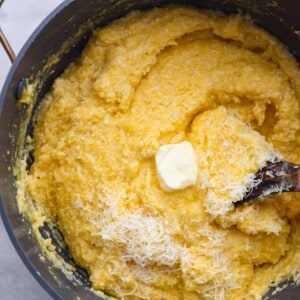Creamy polenta is a perfect side dish for any meal. The comforting texture of ground cornmeal is cooked in a creamy mixture of milk, parmesan cheese, and melted butter. Everyone loves a warm and creamy side dish to accompany their meal. My kids love any mashed potatoes like my Dad’s potatoes or my super easy crockpot potatoes. And really, you can’t go wrong with any sweet potatoes so this casserole is perfect for a side too!
What Does Creamy Polenta Taste Like?
What I love most about this polenta recipe is the extra flavor from the garlic and chicken stock. I also love the addition of milk, butter, and melty parmesan cheese that gives it a creamy texture. These flavor combinations take traditional polenta to the next level, and I can’t wait for you to try it! Creamy polenta pairs so well with so many dishes. Every time I serve it, people ask what I did to make it so creamy. You definitely need to make this recipe and serve it with my Cajun shrimp, my steak bites, or with this creamy chicken recipe!
Creamy Polenta Ingredients:
This creamy polenta recipe only takes a few ingredients! I love that I can throw it all in a pot and let it cook while I prepare the rest of my meal. This side dish is perfect for any meal, so I like always to make sure to have the ingredients on hand. Read my recipe card at the end of this post to get the exact measurements!
Olive Oil: This helps to saute the garlic.Garlic: Who doesn’t love garlic?! I love how it adds a delicious flavor to the polenta. Chicken Broth: I love the added flavor that comes from using chicken broth, but feel free to use water or vegetable broth.Milk: Milk helps add a rich and creamy flavor.Uncooked Polenta: Polenta is made from cornmeal. I recommend using stone-ground, coarse, or medium-ground cornmeal. Try to avoid using fine ground or instant polenta because it will turn out like a thick paste.Butter: I used unsalted butter in this recipe. Parmesan Cheese: Parmesan cheese adds a salty, nutty flavor. Don’t leave it out!Salt: Polenta has little to no flavor all by itself. When you add salt, then it helps bring out the flavor and is a must.Black Pepper: Add black pepper to season and enhance the flavors before serving.
Let’s Make Polenta:
Making creamy polenta is easy, fast, and absolutely delicious! And I can tell you honestly that I prefer making polenta over mashed potatoes because I don’t have to peel the potatoes! You will see just how easily this recipe comes together and saves you time.
Low and Slow: The key to cooking polenta is low and slow. Using low heat is important so that the polenta simmers and slowly releases the starches. This creates a decadent, silky-smooth texture. Whisking throughout the cooking process helps to prevent lumps from forming.Flavor: Because polenta absorbs the flavors so well, it makes it a great base for any seasonings! Try adding in some onion powder, Italian seasoning, cayenne pepper, and/or smoked paprika would be delicious. Cheese: As long as it’s shredded, then any cheese flavor will work! Add in any of your favorites. I have also used cheddar and Colby Jack! Thickness: The thickness of your polenta is totally up to you. You can change how thick or thin it is by adding or taking away the liquid.
In the Refrigerator: Cooked and cooled polenta will keep well stored in an airtight container in the fridge for up to 4 days.To Reheat: The best way to reheat the creamy polenta is on the stovetop. Just place the polenta in a saucepan over medium-high heat. Add a splash of water or milk and stir until warmed through and creamy. It thickens up quite a bit as it cools and is refrigerated, so you may need to adjust the amount of liquid you add. I usually end up adding ¼ cup of liquid, but you may need more or less. Add a little extra cheese melted on top and it’s ready to go!
Air Fryer Mushrooms
Fall off the Bone Slow Cooker Short Ribs
1-Hour Rolls
Copycat Olive Garden Salad
All nutritional information is based on third party calculations and is only an estimate. Each recipe and nutritional value will vary depending on the brands you use, measuring methods and portion sizes per household.
The Best Homemade Alfredo Sauce Recipe Ever!
Insanely Delicious Prime Rib Recipe
Lemon Garlic Parmesan Shrimp Pasta
